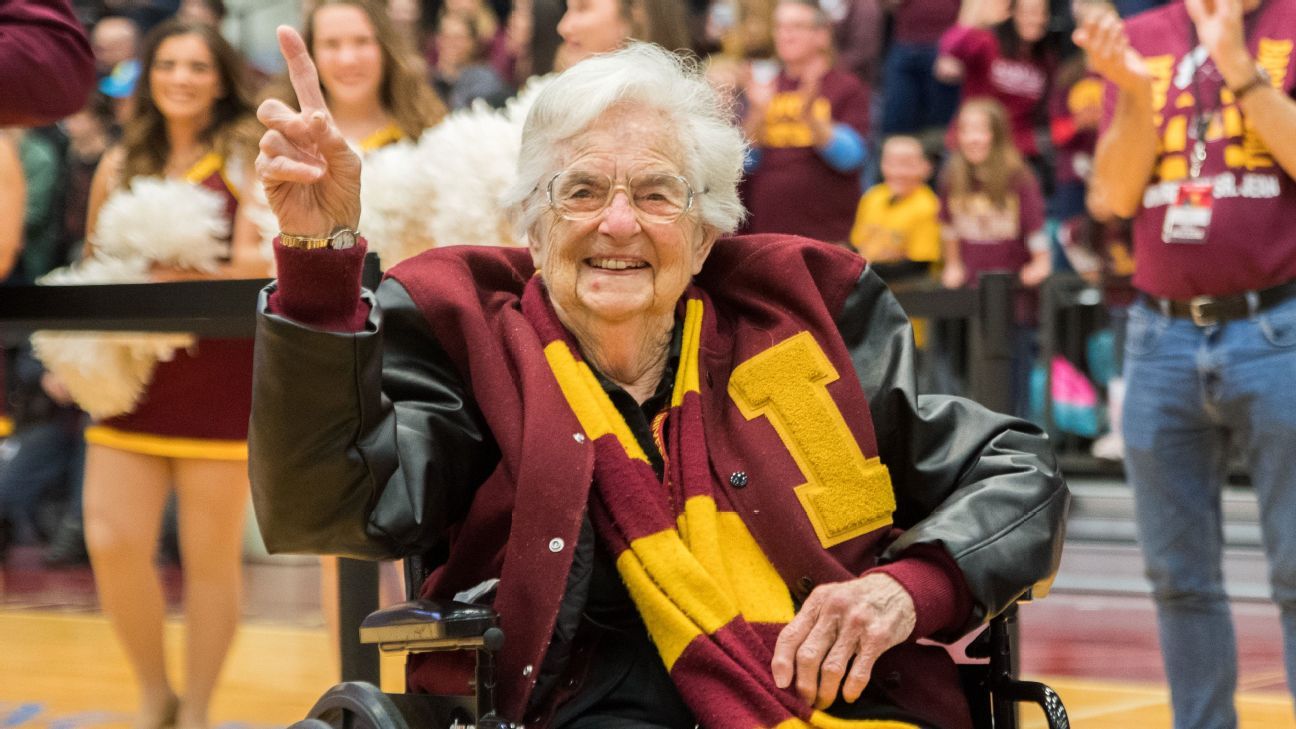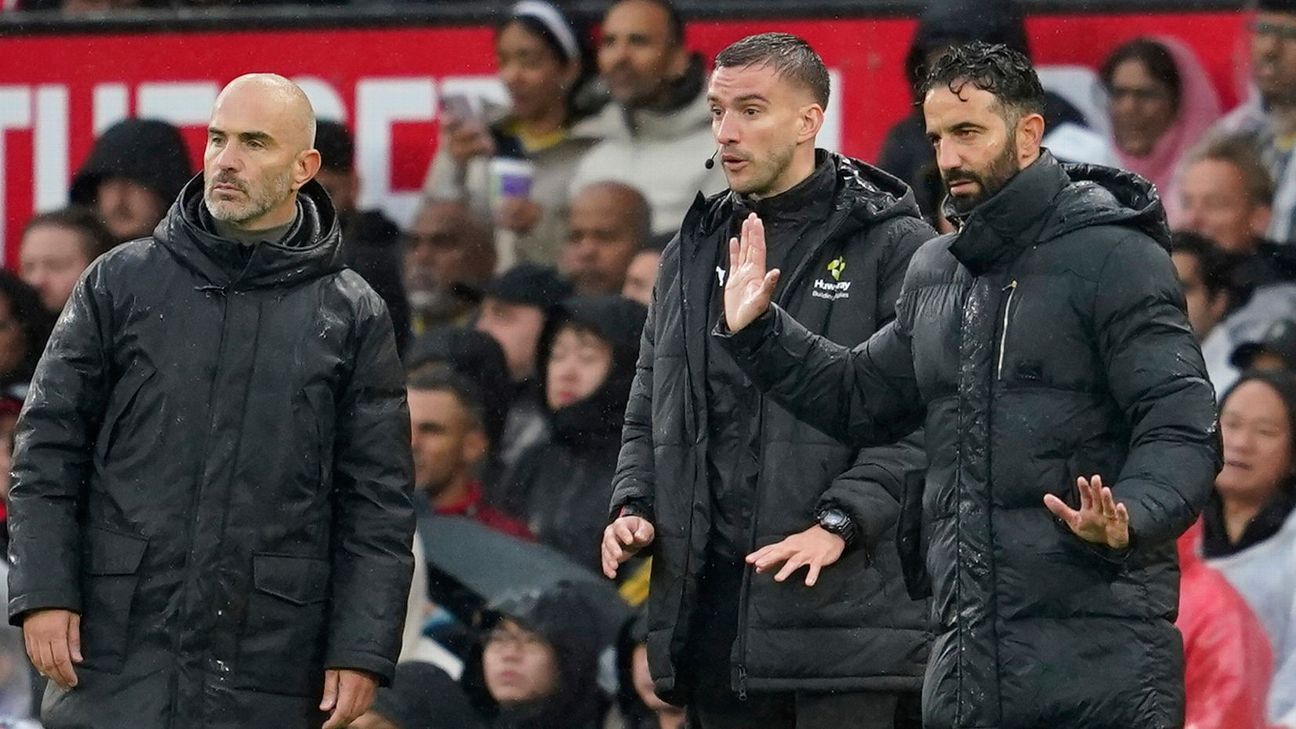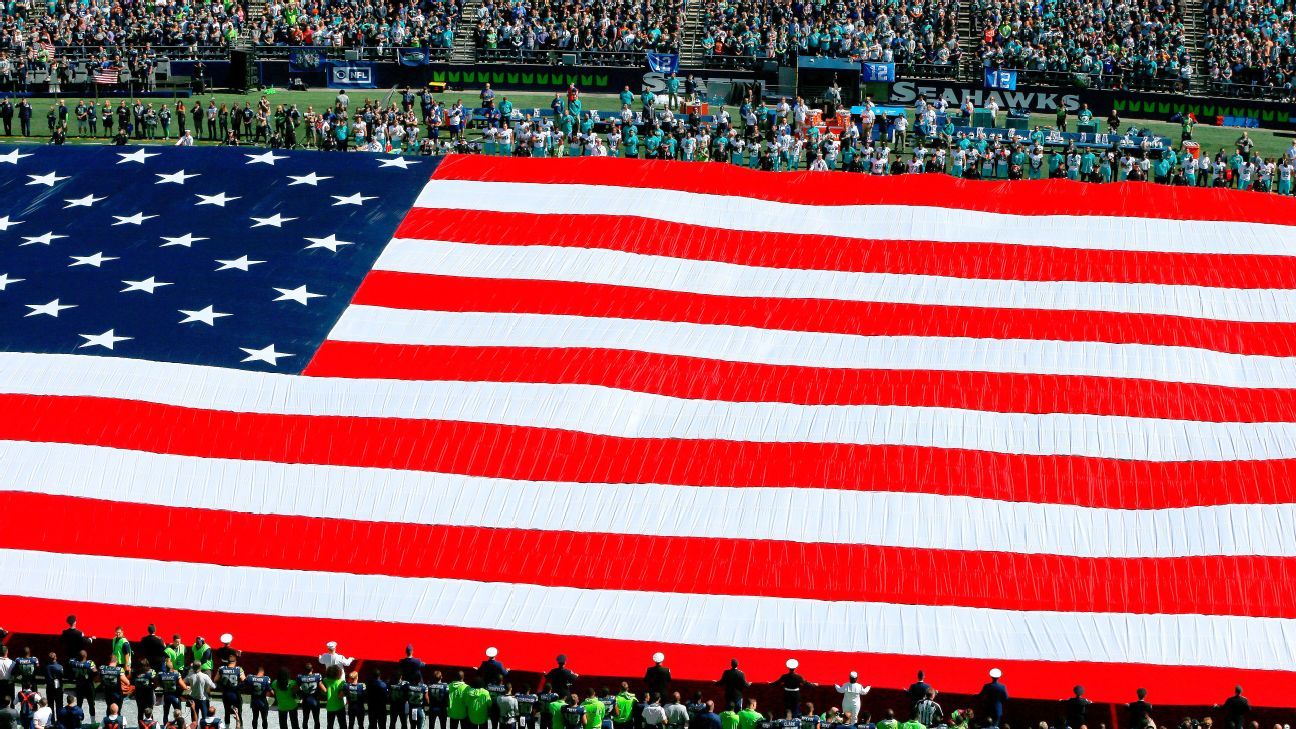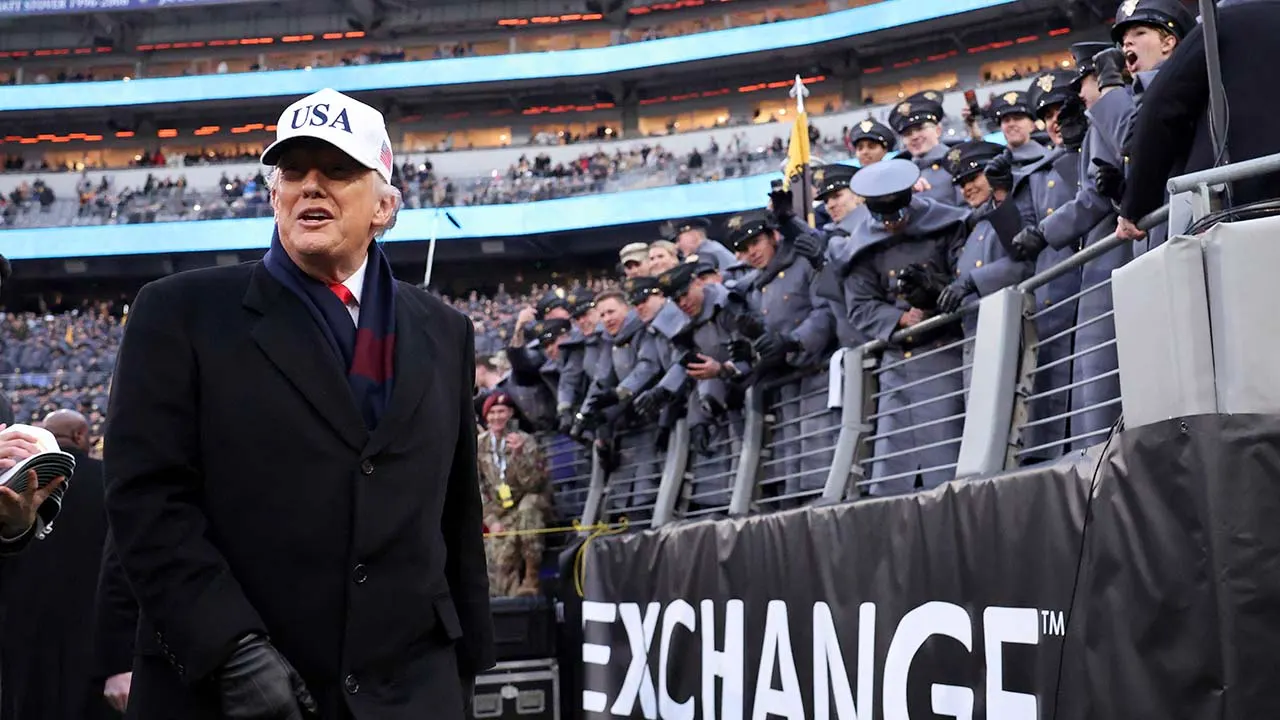Sports
Sister Jean, beloved Loyola-Chicago chaplain, dies

Sister Jean Dolores Schmidt, the beloved, longtime chaplain of the Loyola-Chicago men’s basketball team who became a folk hero during its Cinderella run to the Final Four in 2018, died Thursday, the school said.
She was 106.
“In many roles at Loyola over the course of more than 60 years, Sister Jean was an invaluable source of wisdom and grace for generations of students, faculty, and staff,” Loyola president Mark C. Reed said. “While we feel grief and a sense of loss, there is great joy in her legacy. Her presence was a profound blessing for our entire community, and her spirit abides in thousands of lives. In her honor, we can aspire to share with others the love and compassion Sister Jean shared with us.”
Sister Jean — born Dolores Bertha Schmidt on Aug. 21, 1919, then taking the name Sister Jean Dolores in 1937 — joined the staff at Loyola-Chicago in 1991. Three years later, she became part of the basketball team, first as an academic adviser before transitioning to chaplain. Health issues caused her to step down from her role in August.
She was the Ramblers’ No. 1 fan, and that was on display during the 2018 NCAA tournament when, as the No. 11 seeds, they went on an improbable run to the Final Four, ultimately losing to Michigan. Sister Jean, 98 at the time, was with them every step of the way, praying for the team — and its opponents — before each game and encouraging the Ramblers to play hard, play together and play smart.
And if they lost? She told them regularly not to sweat it; it just wasn’t meant to be.
“She’s an incredible person,” star Loyola-Chicago guard Clayton Custer said at the time.
Fans throughout college basketball, and beyond, agreed.
She became an international celebrity during the Ramblers’ run. Sister Jean bobbleheads and athletic apparel sold fast. She was the subject of countless national TV interviews. And there were even news conferences for her ahead of games. During the loss to Michigan at the Alamodome in San Antonio, T-shirts read “Win One for the Nun!” and a sign in the crowd encouraged the Wolverines to give obedience to “Jean’s Plan.”
Her fame didn’t wane in the years to come.
When she turned 100, Loyola-Chicago announced a scholarship fund and endowment in her honor to support students, and Illinois Gov. JB Pritzker proclaimed Aug. 21, 2019, “Sister Jean Day” across the state. When she turned 103, the Chicago train station plaza at the Loyola campus was renamed in her honor, with a large sign that read “Home of the World Famous Sister Jean!” to greet visitors there. And when she turned 105, she received a proclamation from President Joe Biden — who sent her flowers on at least one previous occasion.
Biden’s message, in part, told Sister Jean: “You have shown us all that yours is a life well lived.”
She remained close to the team, as well.
When Loyola-Chicago qualified for the NCAA tournament in 2021, a vaccinated Sister Jean was cleared to travel to Indianapolis, and before the Ramblers’ second-round game against top-seeded Illinois, she gave them a prayer and a scouting report.
“We have a great opportunity to convert rebounds as this team makes about 50% of layups and 30% of its 3 [pointers]. Our defense can take care of that,” she told the team.
It worked, as Loyola-Chicago upset the Illini to reach the Sweet 16.
“She still sends me an email after every single game,” former Loyola-Chicago coach Porter Moser once said. “There is no human like her.”
Born in San Francisco in 1919, Sister Jean grew up in a devoutly Catholic family. Her religious calling, she said, came at the age of 8. She was in third grade when she met a kind, joyful teacher who belonged to the Sisters of Charity of the Blessed Virgin Mary. Brimming with admiration, she would pray every day: “Dear God, help me understand what I should do, but please tell me I should become a BVM sister,” she recounted in her 2023 memoir.
“I guess God listened to me on that one,” she wrote.
She followed her calling to the order’s motherhouse in Dubuque, Iowa, where she made her vows. She went on to teach at Catholic schools in Chicago and Southern California, where she also coached girls’ basketball, before she ended at Mundelein College — on the Chicago lakefront — in the 1960s. The school became affiliated with Loyola in 1991, and Sister Jean was hired to help students with the transition.
In 1994, she was asked to help student basketball players boost their grades — “the booster shooter” she called herself — and later that year, she was named chaplain of the men’s team. The role, she wrote in her memoir, became “the most transformational and transcendent position” of her life.
“Sports are very important because they help develop life skills,” she said. “And during those life skills, you’re also talking about faith and purpose.”
The university said Sister Jean is survived by her sister-in-law, Jeanne Tidwell, and her niece, Jan Schmidt.
Information from The Associated Press was used in this report.
Sports
‘Head coach’ vs ‘manager’: Why job title matters for Chelsea, Man United

Who would be a football manager? Well, as it turns out, in the Premier League the answer is an increasing number of head coaches.
The difference between the job titles of “manager” and “head coach” may seem mere semantics at first glance, but events at Manchester United and Chelsea this month point to deeper structural problems that many clubs are now grappling with.
Both Ruben Amorim and Enzo Maresca chose to go public with frustrations they deemed as unnecessary interference from the infrastructure around them.
Maresca went first. In mid-December, after a routine 2-0 home win over Everton, which should have calmed the mood around Stamford Bridge, Maresca opted instead to ignite a fire by declaring the buildup “the worst 48 hours” of his tenure due to “a lack of support.”
– Why did Man United, Chelsea, Madrid all sack managers? It’s about culture
– How Man United chose Carrick as head coach: A no-fuss, loyal, safe option
– Real Madrid fired Xabi Alonso after 233 days. Where did it all go wrong?
His working relationship with senior figures at the club quickly eroded, and Chelsea parted company with Maresca just 19 days later. We will never know for certain, but perhaps Amorim, increasingly disgruntled at United, was inspired by those events in west London.
The following day, Amorim hinted at internal issues at a prematch news conference before facing Leeds United and, after that game, launched a full-scale assault on his bosses, insisting he joined United to “be the manager, not the head coach.” Amorim was sacked the following morning.
Chelsea have since doubled down on their existing head coach model by appointing Liam Rosenior as Maresca’s successor, not least because of his experience working for the club’s owners, BlueCo, at their sister team, Strasbourg of France’s Ligue 1.
United’s next move seems less certain after they installed Michael Carrick as an interim boss before making a permanent appointment in the summer.
The club still appears stuck at a crossroads created by legendary manager Sir Alex Ferguson’s departure in 2013, just as Arsenal were when Arsène Wenger left in 2018. They were the two most prominent exponents of the old model, which dictated that control comes at all costs for a manager. But what balance works best in 2026?
What’s the difference between ‘head coach’ and ‘manager’?
2:02
Rosenior: I’m accountable for my players mistakes
Chelsea boss Liam Rosenior refused to criticise Robert Sánchez after errors in the 3-2 Carabao Cup semifinal defeat to Arsenal.
This isn’t a new problem. Ferguson and Wenger once sat on stage together at a League Managers’ Association meeting, opining on how the preeminence they enjoyed was founded on controlling all aspects of their respective clubs. They were becoming increasingly isolated cases.
“The manager is the most important man at the club,” Wenger said. “If not, why do you sack the manager if it doesn’t go well?”
“Very good,” said Ferguson, sitting alongside him, smiling.
Ferguson later praised then-Premier League bosses Alan Curbishley and Kevin Keegan for leaving their posts on “a point of principle,” specifically that West Ham and Newcastle United, respectively, were letting players leave against the wishes of their managers. That was in 2008.
The intervening 18 years have seen the power balance shift steadily away from autonomous managerial figures toward head coaches, who are expected to work within a structure which divides responsibilities, including scouting, recruitment, medical determinations and data analysis among several others. A manager is a visionary to whom everyone must answer. A head coach is more of a prominent cog within a larger machine.
In one clear example of the transformation in thinking, Arsenal appointed nine new department heads around the time of Wenger’s departure in 2018 and trebled the number of operations staff in three years.
Top Premier League clubs routinely arrive at away games with two team buses — the expanded support staff no longer fit onto one bus with the playing squad. Club doctors Stephen Lewis (Chelsea) and Zaf Iqbal (Arsenal) were even listed on the official teamsheet for Wednesday’s Carabao Cup semifinal first-leg clash at Stamford Bridge.
Where the boundaries are drawn for each member of this infrastructure is where the tension usually lies for a head coach.
Today, there are only five Premier League clubs employing someone whose official job title is ‘manager’: Arsenal, Everton, Manchester City, Crystal Palace and Leeds.
One of those is Mikel Arteta, but he is a unique case. He was appointed as Arsenal head coach in December 2019 — following Unai Emery’s unsuccessful attempt to operate within the club’s post-Wenger model — but then “promoted” to manager in September 2020 after winning the FA Cup a month earlier in a Covid-delayed season.
Arteta revealed last week that the plan to promote him was actually hatched before his Wembley triumph.
“It was in my house,” he said. “They came to me and started to propose the idea of what they thought and the way they wanted to structure the club. That was after probably five, six months in the job.
“They believed that and [I said] ‘this is where I think I can help, this is my vision, this is what I would do, this is how I see this project.’ I presented it, and from there we started all together to start to add value to those ideas.
“I didn’t demand it. I didn’t ask for it, and they believed it was the right thing to do. When you have a leader, which is ownership in this case — Stan [Kroenke] and Josh [Kroenke, representing owners Kroenke Sports Enterprises] — and Josh that is very close to us with clear alignment to all of us what he wants to do, how he wants to create that space for everybody, I think it is very easy to work like this.
“At the end, it is about the relationships and the people that we have from great teams with very different qualities. Sometimes, I have been more on certain things; when there is somebody who is much better than me on that, I let them do it. For me, the title doesn’t really reflect the way we operate daily.”
Although KSE is an American company, well-placed sources within football point to the increase in U.S. ownership — now 22 of the top 44 clubs comprising England’s top two leagues — as a contributing factor. They want their clubs to retain a stable, long-term identity of their own, impervious to the idiosyncrasies of the man in the dugout.
The modern-day trend certainly appears to be clubs seeking to establish an identity based on principles set by their own sporting infrastructure, rather than the shorter-term whims of a manager or head coach who is just passing through. The League Managers’ Association published data last year suggesting the average tenure of a sacked manager is 1.42 years.
But there are signs head coaches are pushing back against this transient existence. Amorim and Maresca took internal tensions public while Tottenham Hotspur captain Cristian Romero broke ranks with an Instagram post that suggested the Spurs hierarchy “only show up when things are going well, to tell a few lies.”
It doesn’t help advocates of the head coach model that Arsenal under Arteta lead the Premier League from Pep Guardiola’s Manchester City and Aston Villa, who named Emery as head coach but whose influence is widely acknowledged to extend far beyond the limitations that title would suggest.
Finding the right fit
1:25
Was the Man United job ‘too big’ for Ruben Amorim?
Julien Laurens explains what went wrong for Ruben Amorim at Manchester United after being sacked following 14 months at the club.
Supporters have protested against Chelsea’s BlueCo owners, who completed their takeover in 2022 and whose methods have frustrated head coaches of high pedigree before Maresca, including Thomas Tuchel and Mauricio Pochettino.
The appointment of Rosenior has emboldened critics, suggesting the owners want a “yes man” as head coach, willing to acquiesce to the specialists who operate separately to his immediate coaching staff.
Predictably, Rosenior pushed back on any such notion when speaking at his first Chelsea news conference.
“Being a head coach, you talk about football systems and tactics,” he said. “[But] that’s 10% of the job. The job is to create spirit, energy, a culture. It doesn’t matter if you’re called a head coach, manager or anything else. The job is the same. My job is to have a team that runs, fights for each other, that plays with spirit and quality. That’s what I’m going to focus on.”
Whatever the rights and wrongs of Chelsea’s strategy — which includes employing five sporting directors, an independent medical team whose advice on player load must be followed and regular technical feedback sessions for the head coach after every game — they know exactly what they want.
Multiple sources told ESPN that BlueCo had quickly identified Rosenior as a leading candidate among a small pool of options, ruling out higher-profile names almost immediately. The belief in their model is resolute and clear.
If anything, control has been tightened. Maresca brought six staff with him from Leicester City. Rosenior has three from Strasbourg — assistant Justin Walker, first-team coach Kalifa Cissé and analyst Ben Warner — while Calum McFarlane was promoted from Chelsea’s under-21s and goalkeeper coach Ben Roberts remains in post. Set-piece coach Bernardo Cueva was appointed independently from Maresca and stayed on. All six of Maresca’s staff left.
There seems to be less clarity at United. Even caretaker boss Darren Fletcher admitting that he called Ferguson for “his blessing” before accepting the temporary position smacked of a club still struggling to emerge from the shadow of its past. They didn’t appoint a director of football and technical director until 2021, and Amorim was the first man in the club’s history to be appointed “head coach” rather than “manager.”
However, club sources have told ESPN that director of football Jason Wilcox sees recruitment falling within his sphere of influence and has said publicly that he can’t help but “interfere” in what the head coach is doing. It is, at least from the outside, a confused picture.
Carrick has brought in two staff members for his five-month stint: ex-England No. 2 Steve Holland and Jonathan Woodgate, who worked under Carrick at Middlesbrough.
‘Manager’ is a title that’s earned
Recruitment is invariably a point of friction. Club sources told ESPN that Maresca wanted a center back last summer after Levi Colwill got injured but was told to find internal solutions.
Conversely, ESPN sources say Arteta fought hard and won a battle to sign Mikel Merino from Real Sociedad in 2024 despite others involved in recruitment casting doubt over his ability and transfer fee.
Tottenham are grappling with their own approach, appointing Fabio Paratici as co-sporting director alongside Johan Lange in October, only for Spurs to confirm on Wednesday that the former will leave next month to join Fiorentina.
Gone are the days when the chief scout — and wider scouting staff that followed — operated as close allies of the manager. Some head coaches now insist on bringing their own trusted recruitment staff, often as part of their initial appointment, because they want specialists who share their way of seeing the game. This guarantees the coach a voice early in the scouting process and keeps them closely involved in the club’s strategic thinking and player selection.
Sources working in recruitment say that even though power has gradually shifted away from the manager or head coach, cases where players are signed without that individual’s involvement remain extremely rare, to the point of being almost unheard of in a top-five league environment.
However, the level of power can change over time. If a sporting director signs off on a run of mediocre transfers, a head coach may use that to push for greater influence over recruitment. Equally, when a head coach is flavour of the month with successful results, some will take the opportunity to gain a greater say in squad building.
What matters initially are the job description and the powers laid out in the contract. Perhaps the conclusion is that head coaches who want to become managers have to go to great lengths to earn it.
Arsenal recognised they needed a cultural overhaul and believed in Arteta to deliver it. Guardiola earned it before he arrived as City’s whole football structure was tailored to lure him to the club. Emery has improved Villa to such a dramatic extent that the case for greater influence was almost impossible to ignore.
Maresca and Amorim chanced their arm and failed. They almost certainly won’t be the last.
Information from ESPN’s Rob Dawson and Tor-Kristian Karlsen contributed to this report.
Sports
U.S. names sporting events athletes exempt from visa ban

WASHINGTON — The Trump administration has identified a host of athletic competitions it classifies as “major sporting events” — aside from soccer’s 2026 World Cup and the 2028 Olympic Games — that athletes and coaches will be allowed to travel to the U.S. to take part in despite a broad visa ban on nearly 40 countries.
In a cable sent to all U.S. embassies and consulates Wednesday, the State Department said athletes, coaches and support staff for the World Cup, the Olympics and events endorsed or run by a long list of collegiate and professional sporting leagues and associations would not be subject to the full and partial travel bans that apply to citizens of 39 countries and the Palestinian Authority.
However, the cable made clear that foreign spectators, media and corporate sponsors planning to attend the same events would still be banned unless they qualify for another exemption.
“Only a small subset of travelers for the World Cup, Olympics and Paralympics, and other major sporting events will qualify for the exception,” it said.
President Donald Trump’s administration has issued a series of immigration and travel bans as well as other visa restrictions as part of ongoing efforts to tighten U.S. entry standards for foreigners. At the same time, the administration has been looking to ensure that athletes, coaches and fans are able to attend major sporting events in the U.S.
Trump’s Dec. 16 proclamation banning the issuance of visas to the 39 countries and the Palestinian Authority had carved out an exception for athletes and staff competing in the World Cup, the Olympics and other major sporting events. It delegated a decision on which other sporting events would be covered to Secretary of State Marco Rubio.
Wednesday’s cable lists the events that are covered, including “all competitions and qualifying events” for the Olympic Games, Paralympic Games, Pan-American Games, and Para Pan-American Games; events hosted, sanctioned or recognized by a U.S. National Governing Body; all competitions and qualifying events for the Special Olympics; and official events and competitions hosted or endorsed by FIFA, soccer’s governing body, or its confederations.
The exemption also will cover official events and competitions hosted by the International Military Sports Council, the International University Sports Federation and the National Collegiate Athletic Association as well as those hosted or endorsed by U.S. professional sports leagues such as the National Football League, the National Basketball Association and Women’s National Basketball Association, Major League Baseball and Little League, National Hockey League, Professional Women’s Hockey League, NASCAR, Formula 1, the Professional Golf Association, Ladies Professional Golf Association, LIV Golf, Major League Rugby, Major League Soccer, World Wrestling Entertainment, Ultimate Fighting Championship and All Elite Wrestling.
The cable said other events and leagues could be added to the list.
Of the 39 countries, a full travel ban applies to Afghanistan, Burkina Faso, Chad, the Republic of the Congo, Equatorial Guinea, Eritrea, Haiti, Iran, Laos, Libya, Mali, Myanmar, Niger, Sierra Leone, Somalia, Sudan, South Sudan, Syria, Yemen, and people with Palestinian Authority-issued passports.
A partial ban is in place for citizens of Angola, Antigua and Barbuda, Benin, Burundi, Cuba, Dominica, Gabon, Gambia, Ivory Coast, Malawi, Mauritania, Senegal, Tanzania, Tonga, Togo, Venezuela, Zambia and Zimbabwe.
Sports
Trump to attend College Football Playoff championship game in Miami with Rubio

NEWYou can now listen to Fox News articles!
President Donald Trump will return to the sidelines Monday with Secretary of State Marco Rubio for the College Football Playoff championship in Miami, where the Indiana Hoosiers will face the Miami Hurricanes.
Trump’s expected attendance was first reported by Axios.
President Donald Trump, right, and Defense Secretary Pete Hegseth attend an NFL game between the Washington Commanders and the Detroit Lions at Northwest Stadium in Landover, Md., Nov. 9, 2025. (AP Photo/Jacquelyn Martin)
Monday’s appearance at the national championship game marks another high-profile outing for the president, who has attended several major sporting events during his second term.
CLICK HERE FOR MORE SPORTS COVERAGE ON FOXNEWS.COM
In April, Trump sat alongside UFC President Dana White outside the octagon for UFC 314 in Miami and again two months later at UFC 316 in New Jersey. He also attended several events in September, including the Ryder Cup at Bethpage Black in New York and a New York Yankees game on Sept. 11, 24 years after the 9/11 attacks.

President Donald Trump waves to the crowd as he arrives on the first hole on the first day of competition for the Ryder Cup at Bethpage Black. (Brendan Mcdermid/Reuters via Imagn Images)
TRUMP WARNS COLLEGE SPORTS ARE IN ‘BIG TROUBLE’ IN CRYPTIC POST
President Trump has taken a special interest in sports in his second term.
In December, he warned the current state of name, image and likeness (NIL) was not sustainable and could pose a threat to college athletics, especially sports outside of football. He has also made ensuring the fairness and safety in girls and women’s sports a top priority of his administration.

President Donald Trump attends the 126th Army-Navy Game between the Army Black Knights and the Navy Midshipmen at M&T Bank Stadium in Baltimore Dec. 13, 2025. (Tasos Katopodis/Getty Images)
CLICK HERE TO DOWNLOAD THE FOX NEWS APP
Top-seeded Indiana, led by Heisman Trophy winner Fernando Mendoza, will take on Miami at Hard Rock Stadium in Miami Gardens, Florida, Monday at 7:45 p.m. ET.
Follow Fox News Digital’s sports coverage on X, and subscribe to the Fox News Sports Huddle newsletter.
-

 Politics1 week ago
Politics1 week agoUK says provided assistance in US-led tanker seizure
-

 Entertainment1 week ago
Entertainment1 week agoDoes new US food pyramid put too much steak on your plate?
-

 Entertainment1 week ago
Entertainment1 week agoWhy did Nick Reiner’s lawyer Alan Jackson withdraw from case?
-

 Business1 week ago
Business1 week agoTrump moves to ban home purchases by institutional investors
-

 Sports5 days ago
Sports5 days agoClock is ticking for Frank at Spurs, with dwindling evidence he deserves extra time
-

 Sports1 week ago
Sports1 week agoPGA of America CEO steps down after one year to take care of mother and mother-in-law
-

 Business1 week ago
Business1 week agoBulls dominate as KSE-100 breaks past 186,000 mark – SUCH TV
-

 Tech3 days ago
Tech3 days agoNew Proposed Legislation Would Let Self-Driving Cars Operate in New York State






